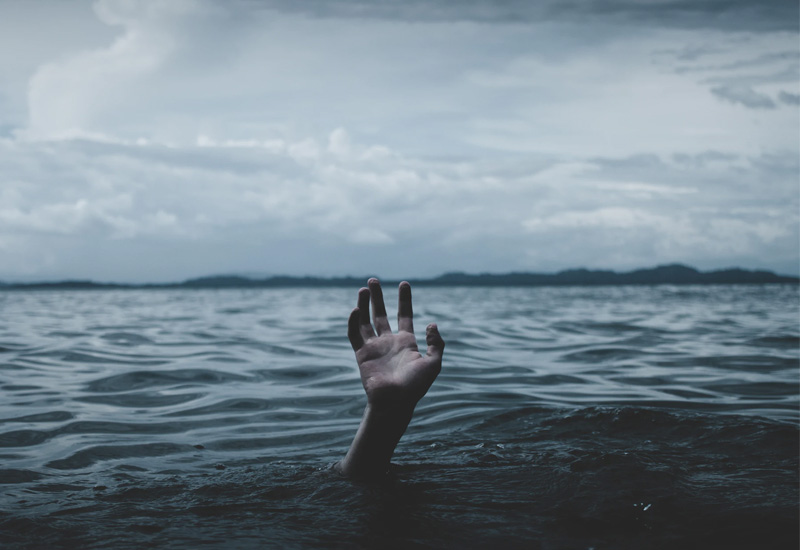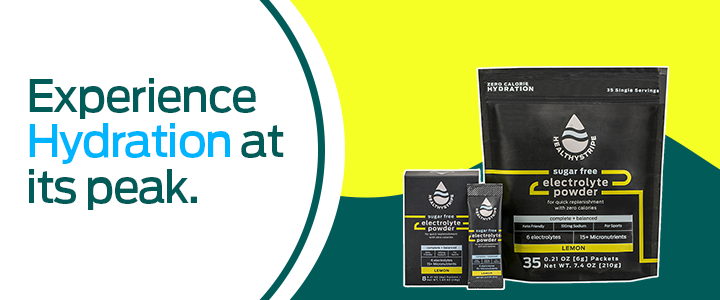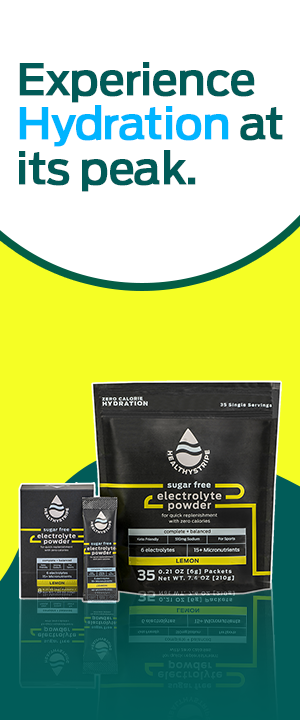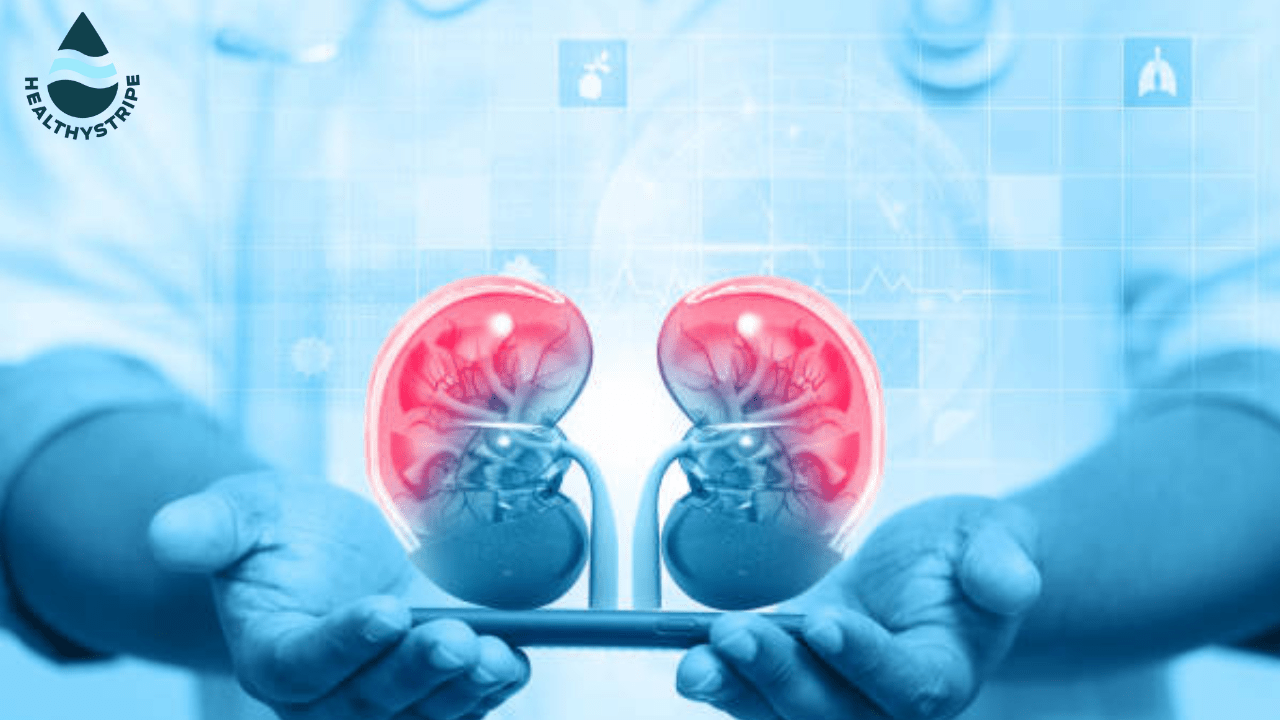What Happens If You Drink Too Much Water?

To stay healthy, an average person must drink at least 2 liters of water in a day. This means, that with an average life expectancy of 80 years, you are drinking nearly 60,000 liters of water. That’s really a lot, considering that your weight remains unchanged despite the hundreds of gallons of water you consume.
But did you ever consider what happens when you drink too much water? Well, till a few years back, the common perception was that you cannot overhydrate. But today all that is changing.
The latest research points out that drinking more than what your body requires can be detrimental to health. Too much water can dilute the electrolytes in your body, affecting normal body functioning and creating health risks.
Understanding Overhydration
Overhydration, which is also known as water intoxication or hyponatremia, is a potentially dangerous condition that occurs when the body takes in more water than it can excrete. It can lead to a dilution of electrolytes, particularly sodium, in the blood, which can result in swelling of the brain and other organs, seizures, coma, and even death.
There can be many causes behind it. These include excessive consumption of water, most particularly during endurance events, drinking too much water too quickly, or drinking water without adequate electrolytes, which in turn can lead to the causing of certain medical conditions, such as kidney failure, heart failure, and hormonal imbalances.
Some of the major symptoms of overhydration include nausea, vomiting, headache, confusion, seizures, and in severe cases, coma, and death. Awareness of its risks and symptoms, as well as appropriate prevention and treatment, can help to prevent this condition and promote overall health and well-being.
What happens when you drink too much water?
There are many disadvantages to drinking too much water.
When you drink a lot of water, (scientific term: water intoxication), you will, most often, end up with hyponatremia.
According to the Cleveland Clinic, hyponatremia is a condition where the levels of sodium in the body go down below the normal level. Your blood gets “watered down” so to speak.
What are the signs of drinking too much water?
Some symptoms associated with drinking too much water or hyponatremia include:
- Confusion and seizures
- Headaches
- Muscle cramps
- Weakness
- Nausea and vomiting
- Fatigue
- Lethargy
Other more severe complications include:
- Changes in mental state
- Seizures
- Coma and death
The risk of hyponatremia is higher among those suffering from underlying medical and health conditions such as lung conditions, liver and brain disorders, and cardiac problems.
What to do when you drink too much water?
The most common way of treating excess water intake or hyponatremia, depending on the severity of the condition includes
- Restricting water intake
- Adjusting medications, especially if there are any pre-existing conditions
- Addressing the underlying causes
Water intoxication occurs due to overhydration which happens for two reasons:
- You are drinking too much water
- Your body is unable to flush out all the water that you drink.
So, is there a way to recognize if you are overhydrated?
As with dehydration, your urine is a significant marker of your hydration status.
Ideally, your urine should be a pale yellow color and have a mild odor. If your urine is very dark and smells pungent, you are dehydrated. Similarly, if your urine is pale and looks like water, then there are very good chances that you are overhydrated.
Why is overhydration even a thing?
A lot of misconceptions regarding drinking too much water can be attributed to the enormous growth in the fitness industry.
Athletes, sportspersons, and fitness experts often go through hours of training and endurance activities. They believe that consuming a lot of water and liquids is extremely important.
Europe PMC published an article explaining the role of water intoxication as a possible complication during endurance exercises. It details a study where four athletes participating in endurance activities for over 7 hours developed symptoms of water intoxication.
A combination of voluntary overhydration with energy drinks and moderate loss of sodium due to low sweating leads to this condition. The athletes were later put on a moderate fluid intake regimen which corrected the fluid imbalance. They were able to return to their normal health.
Another possible cause of overhydration can be attributed to extreme weather conditions. Those living in hot, sweaty climates naturally feel thirsty. Drinking plain water may not always quench the thirst. These conditions may push people to drink more water, leading to overhydration.
A good tip here, if you stay in extreme hot climates and are looking for ways to hydrate without getting overhydrated, electrolyte drinks are an excellent option for you.
Soldiers and trainees working in extreme weather conditions often find themselves overhydrated (due to drinking a lot of water) and then facing symptoms related to hyponatremia.
With that being said, we cannot survive without drinking water either. As with everything in life, moderation is the key to a healthy life. It is important to understand that there may be a thin line between adequate water intake and excessive water intake.
How much water can kill you?
The answer to drinking how much water can kill you and cause death is that it varies based on a variety of factors which include factors such as a person’s body weight, age, sex, and overall health. However, the popular belief is that consumption of a large amount of water in a short period can lead to water intoxication, also known as hyponatremia or overhydration. This is how drinking too much water can kill you.
The lethal dose of water can vary significantly, but it is popularly accepted that consumption of more than 6 litres of water in a short period can lead to water intoxication and death. Such an amount of water could cause electrolyte imbalances, resultantly leading to swelling of the brain, seizures, coma, and ultimately death.
Why is adequate water intake important?
Water is the giver of life. It forms an important component of :
- Blood: 90%
- Kidneys: 79%
- Muscle: 79%
- Liver: 79%
- Brain: 75%
- Lungs: 83%
- Skin: 64%
In effect, water is present almost everywhere in your body.
So, how much water should you drink in a day? You will need to drink at least 2 liters of water in a day to stay healthy.
If you are wondering what happens to all of this water and fluids you drink, four things happen:
- You lose water when you sweat. Along with water you also lose electrolytes such as sodium, potassium, calcium, and magnesium
- You lose water through urine. Salts are lost in a lesser proportion when compared to sweat
- You lose water through respiration
- Then there is something called invisible perspiration, another reason you lose your bodily fluids.
Since there is so much water loss, compensation is necessary to ensure a proper fluid balance. In other words, you need to properly hydrate yourself.
So, what exactly is hydration? It is the process by which your body absorbs the necessary fluids and electrolytes from the food, water, and drinks you consume.
Depending on various factors such as
- The area where you stay
- Your age
- Sex
- Metabolic rates
- Underlying medical conditions;
you must consume a minimum of 2 liters per day. If you look up online, you will find different information from different sources on how much water you should drink.
For example, the Institution of Medicine based out of Washington, USA recommends that men should drink at least 3 liters of water or fluids per day, while women should cap it at around a little more than 2 liters.
The Indian Council of Medical Research (ICMR) guidelines for drinking water state that a healthy person should drink an average of 2 liters per day. This consumption should go up in hot and sweaty weather and when you are performing vigorous activities such as:
- Workouts
- Fitness training
- Athletic and sporting events
- High-intensity activities
Did you know that you need not drink just water to stay hydrated? Your hydration plan can also include:
- Electrolyte drinks
- Energy and sports drinks
- Beverages such as tea and coffee
- Natural electrolyte drinks such as fruit juices, smoothies, coconut water, milk, etc.
- Hydrating foods such as watermelon, cucumber, etc
As long as you meet these standard requirements, you stay hale and healthy.
Prevention and Treatment
Prevention of overhydration involves maintaining a proper balance between water intake and fluid loss. The same can be achieved by drinking water in moderation and being mindful of excessive sweating during physical activity. You should be aware of how much water can kill you. One should consume fluids containing electrolytes, such as sodium, potassium, and magnesium, for maintaining proper electrolyte balance.
Some of the tips for avoiding overhydration include:
- Drinking water in moderation: You should drink enough water to remain sufficiently hydrated but avoid its excessive consumption.
- Listening to the body: Only drink water when you feel thirsty and stop as soon as you feel satisfied.
- Be mindful of your fluid intake during physical activity: While being engaged in intense exercise or activity, be mindful of your fluid intake and electrolyte balance. While it is not fixed how much salt water can kill you, to be on the safer side, you can drink fluids with electrolytes to replenish lost minerals.
- Monitoring the urine color: Your urine colour excellently indicated the status of your hydration status. Pale yellow urine is an indicator of proper hydration.
- Being mindful of medical conditions: Individuals with certain medical conditions, such as kidney or heart disease, should consult their healthcare provider about safe levels of water intake and any necessary dietary modifications.
- Paying proper attention to symptoms: If you experience symptoms of overhydration, such as nausea, vomiting, headache, confusion, seizures, or coma, seek medical attention immediately.
By following these tips, you can maintain a healthy balance of fluids and electrolytes and avoid the potential risks of overhydration. Remember, proper hydration is essential for optimal health and well-being, but moderation and balance are key.
Treatment for overhydration involves ceasing any further intake of water, administration of intravenous fluids with electrolytes, and monitoring electrolyte levels in the blood. Intravenous fluids with electrolytes, particularly sodium, are typical of much use in restoring electrolyte balance and preventing further dilution of electrolytes in the blood. One should note that overhydration can be a life-threatening condition, and if left untreated, can lead to severe health consequences.
The other side of the picture:
While most of the research proves that drinking too much water is harmful, a section of people and scientists believe that there is nothing like overhydration.
For example, an article published in the Jama Network journal states that the body has its own mechanisms of handling water metabolism through satiety and other processes.
Still, research in this aspect is limited.
Takeaways:
Considering all the information we have, we strongly believe that drinking too much water can be harmful. A lot of scientific and research studies prove this point.
The best policy is to stick to the common guidelines of drinking 6 to 8 glasses of water in a day under normal circumstances and adding intake when excessively sweating or participating in strenuous activities.
Moderate intake of water contributes to healthy metabolism and helps you stay hale and healthy!!
Drinking Too Much Water Related FAQs
What are the early signs of overhydration?
How much water should you drink in a day?
The amount varies depending on a catena of factors such as age, sex, activity level, and climate. A general guideline is to drink at least 8 cups or 64 ounces of water per day.
Can drink too much water cause a heart attack?
Drinking too much water can lead to a condition called hyponatremia, which can cause swelling in the brain and potentially lead to a heart attack. However, this is rare and usually only occurs in extreme cases.
What are the long-term effects of overhydration?
Overhydration on a long-term basis can have the effect of chronic hyponatremia, which may cause symptoms such as nausea, headaches, confusion, seizures, and coma. It can also cause fluid buildup in the lungs, thereby impairing breathing and causing respiratory failure.
Is it possible to die from drinking too much water in one sitting?
It is possible to die from drinking too much water in one sitting. The resultant condition is popularly known as water intoxication or hyponatremia. In such conditions, kidneys fail to excrete excess water, leading to dangerous levels of water in the blood.
Can you overhydrate by drinking sports drinks or other beverages?
Yes, it is possible to overhydrate by drinking sports drinks or other beverages. As these drinks are quite rich in electrolyte content, they can cause imbalances if consumed in excess.
Can overhydration cause brain damage or permanent disability?
Yes, overhydration can have the effect of causing brain damage or permanent disability in extreme cases of hyponatremia. It can lead to cognitive impairment, seizures, coma, or death.









